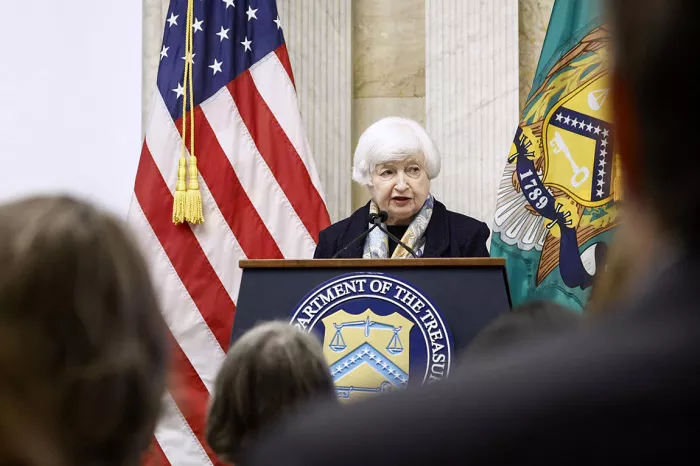On Wednesday, the United States expanded its sanctions against Russia, targeting Chinese entities aiding Moscow’s war efforts in Ukraine and tightening restrictions on foreign financial institutions collaborating with sanctioned Russian entities. The move, announced just as G7 leaders convened in Italy, underscores efforts to bolster support for Ukraine and undermine Russia’s military capabilities.
Since the conflict began, the U.S. has sanctioned over 4,000 Russian businesses and individuals, aiming to disrupt financial flows and arms supplies that have bolstered Russia’s military advantage. Despite these efforts, new entities continuously emerge as Russia adapts its supply chains.
Aaron Forsberg, Director for Economic Sanctions Policy and Implementation at the State Department, highlighted the evolving nature of sanctions against Russia, describing them as a “dynamic affair.”
The latest sanctions, targeting over $100 million in trade crucial to Russia’s war efforts, primarily aim to deter companies and individuals in countries like China, the UAE, and Turkey from assisting Moscow in circumventing Western technology blocks. This package also threatens sanctions on foreign financial institutions engaging with nearly any sanctioned Russian entity, reflecting U.S. efforts to constrain Russia’s war economy.
Treasury Secretary Janet Yellen emphasized Russia’s military dependence on external supplies, asserting that the sanctions intend to limit Moscow’s access to global markets.
The escalation coincides with President Joe Biden’s arrival at the G7 summit, where leaders prioritize aiding Ukraine by converting frozen Russian assets into substantial financial support for Kyiv.
The sanctions specifically targeted seven Chinese and Hong Kong-based companies for exporting materials potentially used in Russian weaponry. U.S. officials noted China’s significant role as a supplier of critical components to Russia, spanning both Chinese and Western technologies.
In response to the sanctions, China’s stance remains contentious, with reluctance to disrupt lucrative trade ties with Russia amid the ongoing conflict. This diplomatic tension underscores broader geopolitical challenges as global powers navigate sanctions dynamics and strategic alliances in the context of the Ukraine war.
The U.S. also sanctioned entities in Turkey and the UAE for providing essential items to Russia, reinforcing its policy to deter global support for Moscow’s defense sector.
The expanded sanctions package marks a strategic escalation, targeting Russia’s financial infrastructure, including the Moscow Stock Exchange, and aiming to restrict financial flows and future revenue sources such as Arctic liquefied natural gas projects.
Furthermore, the sanctions addressed human rights abuses, penalizing individuals involved in the forced transfer and deportation of Ukrainian children to Russia, highlighting the broader humanitarian dimensions of the conflict.
As the geopolitical landscape evolves, the U.S. remains vigilant in leveraging sanctions as a tool to curb Russian aggression while navigating complex global economic interdependencies.
You Might Be Interested In

